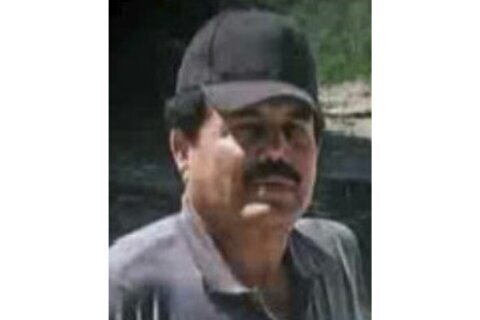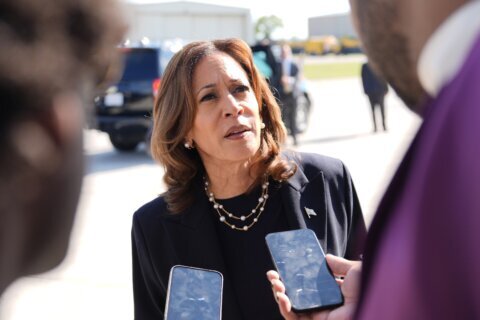Picture this: You’re sitting across from a hiring manager, excited for the opportunity to land a job at your dream company. Then comes the open-ended prompt that will set the tone for the entire interview: “Tell me about yourself.” Suddenly, your heart starts racing and your mind goes blank. This is a common response for many people who face this question unprepared.
While talking about yourself can feel overwhelming, it allows you to highlight the strengths and achievements that make you a great fit for the job. Here are our best tips for formatting and crafting the perfect response.
[Common Job Interview Questions and How to Answer Them]
Why Do Interviewers Ask You to Introduce Yourself?
Although your resume provides a snapshot of your professional accomplishments and qualifications, it can only tell so much. To get a complete picture, interviewers may ask you to introduce yourself.
Here’s what Lucia Kanter, a negotiation coach who has worked closely with human resources professionals on hiring, says interviewers typically pay attention to when they listen to your self-introduction:
— Your presentation skills. Is your response informative? Do you ramble without reaching a point?
— How well you tell a story. Is your response organized? Is it concise?
— What you focus on. In response to a wide-open question, what do you choose to highlight?
— Your personality. Will you be a good fit for the job and the workplace culture?
Key Components to Include in Your Answer
— Your background. Start with a brief bio highlighting your academic background and unique skills or certifications that make you stand out.
— Your professional history. Talk about previous experiences relevant to the job and company. Don’t forget to include examples of what you’ve accomplished in your past roles.
— Your “why.” Why did you apply to this job and why are you the best candidate?
— Your goals and ambitions. Talk about your aspirations based on what you’ve discussed so far. For example, what do you hope to achieve in this particular role?
[Read: How to Answer ‘Why Do You Want to Work Here?’]
“Tell Me About Yourself” Sample Answers
Here are 10 sample answers to help you structure the perfect self-introduction based on where you are in your career.
Sample Answer for Fresh Grads
“I just graduated from the University of Southern California with a bachelor’s degree in computer science. During my time there, I interned at top tech companies like Amazon, where I developed my programming skills in various languages. One of the accomplishments I’m most proud of during my 10-week internship at Amazon was when I optimized the performance of a web application using Google Cloud Run, which boosted the number of concurrent users by 30%. This internship experience confirmed my love for computer science, so I knew I had to apply when I saw the junior web developer role here. And though coding is what I love most, I also enjoy solo traveling and experimenting with new recipes during my free time.”
Sample Answer for Experienced Professionals
“I’m a logistics operations manager with over 20 years of experience in the manufacturing industry. During my career, I’ve successfully led complex supply chain operations, managed large cross-functional teams and implemented process improvements that resulted in optimized supply chain efficiencies. For example, I helped one of my past employers achieve a 98% accuracy rate in order fulfillment by implementing a quality control system that reduced packing and shipping errors.
And while I really enjoyed my work, I’d love the opportunity to expand my experience across different industries, particularly the food and beverage industry, which is why I’m so excited about this opportunity.”
Sample Answer for Those Making a Career Switch
“I spent the last five years working as a software developer at Google. However, as I progressed in my career, I realized I wanted to play a more strategic role in the company. Instead of just writing code, I wanted to dive deeper into the product development side, from identifying customer needs to strategizing marketing efforts. This realization sparked my decision to make a career pivot and ultimately apply for this role. Looking back, it makes sense that I’ve gravitated in this direction, as I’ve always been fascinated by the idea of taking a product through its entire life cycle.
Outside of work, one of my favorite hobbies is completing puzzles. Recently, I tackled a 1000-piece van Gogh painting puzzle. And it’s funny how much the experience reminds me of product management work since taking a product from ideation to launch requires a similar level of commitment, problem-solving skills and dedication.”
Sample Answer for Those Interviewing for a Similar Position
“I’ve been working as a senior account manager at Xcel for the past four years, where I’ve mainly been responsible for handling client onboarding, strategic planning and regular check-ins to ensure their needs were met. During my time at the company, I was able to achieve a 20% increase in client retention by going above and beyond and making sure my clients feel valued and understood. I’m interested in this position at your company because it aligns perfectly with my skills and interests, and I’m excited to bring my experience and passion for client success to your team.”
Sample Answer for Managerial or Leadership Roles
“I’ve spent over five years as a team lead in the product development department at a small software company, managing a team of 10 engineers. I focused on overseeing project development, setting team goals and ensuring timely delivery of high-quality products. An achievement that I’m most proud of was when I led a project that improved our development cycle by 30% through process optimization and automation. And that’s what initially attracted me to this product development lead role at your company, as I’m passionate about implementing efficient processes and driving team performance.”
Sample Answer to Highlight Experience With Remote Team Management
“In my previous role as a remote project manager, I led a team of 15 across three different time zones. To keep everyone on the same page, I used tools like Slack and Asana, and made sure we stayed connected with regular check-ins and virtual team-building activities. Even though we were working from different places, we consistently hit our project milestones and stayed engaged and motivated. I’m hoping to bring these remote management skills to your team and help everyone collaborate effectively, no matter where they’re working from.”
Sample Answer to Highlight Experience With Leadership in Diversity and Inclusion
“In my role as diversity and inclusion Manager at Jin Co., I developed several initiatives to better support underrepresented groups in our workplace, including launching an unconscious bias training and revamping our hiring practices to ensure a more diverse candidate pool. These changes led to a 25% increase in workplace diversity and helped create a more engaged and satisfied team. As you can tell, I’m quite passionate about building inclusive environments, and I’d love to bring this experience to your team and help enhance your diversity and inclusion efforts.”
Sample Answer to Highlight Experience Driving Results in High-Stakes Projects
“As a lead project coordinator at my previous company, I managed the launch of our new EcoTech product line, which included a range of sustainable tech gadgets that catered to environmentally conscious consumers. My role involved coordinating with the design, engineering and marketing teams to ensure that all aspects of the product launch were meticulously executed.
We had a tight deadline to meet, and I managed to navigate challenges such as supply chain disruptions and last-minute design changes. We successfully launched the product line on time and exceeded our initial sales projections by 15%. So, I’m proud to say that I work well in high-pressure environments and excel at keeping teams motivated. I’m looking forward to applying these skills to your organization and contributing to impactful project outcomes.”
Sample Answer for Transitioning From an Agency to an In-House Role
“I’ve been working as a senior account executive at Orange Creative Agency for the past three years, where I managed client projects and developed creative strategies across various industries, including retail, technology and health care. For example, I led a campaign for a major retail client that involved coordinating a multichannel strategy, including social media ads, influencer partnerships and in-store promotions. This campaign boosted their brand awareness by 45% and increased sales by 20% during the promotion period.
Transitioning to an in-house role excites me because it allows me to focus deeply on a single brand and drive long-term strategies. I’m looking forward to applying my project management skills and strategic insights to contribute to your company’s goals and create impactful results.”
Sample Answer for Those Pivoting to a Similar Role in a New Industry
“My background is in marketing, where I’ve worked as a marketing strategist at Pilates Peach for the past five years. During my time there, I’ve developed and executed targeted marketing campaigns that increased our Pilates studio’s membership by 40% over two years. I also spearheaded our social media strategy, which included running successful ad campaigns on Instagram and Facebook that drove a 30% boost in class bookings.
Now I’m pivoting to the tech industry, which I’m excited about because I’m also passionate about technology and innovation. The core skills I’ve developed, such as strategic planning and team collaboration, are highly transferable, and I’m confident that my marketing expertise will help contribute to your company’s growth.”
[READ: 7 Things Interviewers Notice First]
8 Tips to Help You Answer the “Tell Me About Yourself” Question
Nailing your response to “Tell me about yourself” can make all the difference in whether or not you land the job. Here’s how to provide a flawless answer that leaves a lasting impression on your interviewer.
Learn from others. Andrew Fennell, former recruiter and current director at StandOut CV, a resume advice service, says watching YouTube videos of mock interviews can give you a good idea of what works and what doesn’t. For example, if you’re interviewing for a marketing role, Fennel says searching for keywords like “marketing mock interview tell me about yourself” should give you an idea of how others have tackled this question.
Follow the 80/20 rule. To exude professionalism in your answer, Fennel recommends “keeping the conversation work-related 80% of the time and only mentioning anything personal 20% of the time.” While most interviewers will appreciate you sharing your personality, don’t overdo it.
Practice, practice, practice. While “Tell me about yourself” may seem like a straightforward question, practicing your answer will help you feel more confident and stay on message. But make sure not to memorize or recite your answer word for word since giving a canned response will sound inauthentic. A good trick is to memorize a few of your key points and fill in the gaps naturally.
Ask clarifying questions. It’s normal to feel caught off guard when asked an open-ended question like “Tell me about yourself,” especially if you’re nervous. Instead of stumbling through a vague and uncertain response, Kanter says you could take control of the conversation by asking clarifying questions like, “That’s a big but great open question. Can you narrow it down for me? What aspects of my background, life, personality or experience would you like to hear about as it relates to our prospect of working together?” Doing so buys you time to gather your thoughts and prepare a more thoughtful response.
Use the “past, present, future” formula. A great way to structure your answer is to focus on your professional life and use the present-past-future formula. You’ll start by describing what you’ve done in the past. Then, you’ll explain what you’ve done recently and what you’re looking forward to doing in the future. By using this structure, you can provide a comprehensive overview of your career trajectory while still being organized and engaging.
Know your audience. If you’re going through multiple rounds of interviews, you might be asked to introduce yourself at every stage of the process. However, that does not mean you should give the exact same answers. For example, if you’re doing an initial phone interview with a recruiter who does not have extensive knowledge about the hard skills of the team you’ll be joining, you may want to avoid getting too technical. But if you’re talking to your future manager, who will likely have a deeper understanding of the technical aspects of the position, then it’s appropriate to use industry-specific jargon and discuss more detailed accomplishments relevant to the role.
Keep your answer positive. Interviews are your opportunity to make a strong first impression professionally, so it’s important to avoid speaking negatively about previous employers or criticizing other interview experiences. Instead, maintain a positive and upbeat tone and focus on what you’ve enjoyed and learned from your previous roles.
Use the STAR method. The STAR method stands for situation, task, action and result. This method provides a structured way to explain how you’ve tackled challenges by discussing the specific situation, task, action and result of the experience you are describing.
For example, let’s say you were overseeing a team project that was falling behind schedule. You would describe the project’s initial timeline and setbacks (situation), your role in getting it back on track (task), the strategies you employed to reorganize tasks (action) and how these efforts led to completing the project on time (result).
[READ: How to Answer ‘What Are You Most Proud Of?’ in an Interview]
Do’s and Don’ts for Answering “Tell Me About Yourself”
A well-crafted response to “Tell me about yourself” can impress the interviewer by showcasing your skills and personality, whereas an unprepared one may be a strike against you. Here are some do’s and don’ts to keep in mind if you’re asked this question in an interview.
Do:
— Be concise. Keep your response under two minutes at most.
— Emphasize your strengths and achievements. At the same time, be honest about the areas where you may need more experience or expertise.
— Mention quantified and measurable achievements. Provide specific examples from your professional experience to illustrate your points.
— Speak confidently and maintain eye contact. Speaking confidently and assertively will demonstrate your communication skills.
— End on a positive note. Show your enthusiasm about contributing to the company’s success.
Don’t:
— Provide a generic answer. Tailor your response to the job and company.
— Share irrelevant personal information. Be choosy about what information you share and stay focused on the role you’re interviewing for.
— Rush. Take a moment to breathe and gather your thoughts before responding.
— Recite your resume. Instead, highlight the parts of your experience that relate to the role you’re interviewing for.
— Be too informal. Avoid controversial topics or any of-the-cuff comments that could harm your chances of getting hired.
More from U.S. News
3 Ways to Use AI to Find Your Next Job
Job Skills to List on Your Resume (And What to Exclude)
How to Describe Weaknesses in a Job Interview
How to Answer ‘Tell Me About Yourself’ in a Job Interview originally appeared on usnews.com
Update 08/09/24: This story was published at an earlier date and has been updated with new information.







